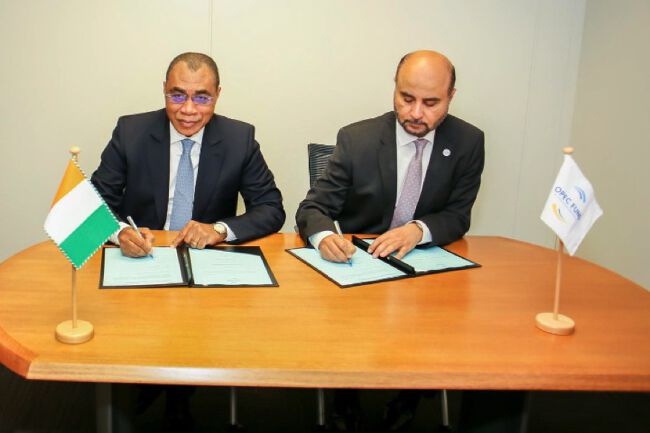
On the sidelines of the annual meetings of the International Monetary Fund (IMF) and the World Bank taking place from October 21 to 26, 2024, in Washington, Côte d'Ivoire signed a strategic financing agreement with the OPEC Fund for International Development (OFID). Amounting to 36 billion CFA francs (60 million dollars), this agreement aims to support the country's economic transformation and inclusive governance program, in line with President Alassane Ouattara's vision. The Minister of Finance and Budget, Mr. Adama Coulibaly, who initialed this agreement, emphasized that this funding will give a boost to the Ivorian National Development Plan (PND), which is based on economic transformation and equitable governance.
At the same time, Côte d'Ivoire is pursuing an ambitious agenda during these annual meetings, with a high-level delegation that includes, among others, the Minister of Finance and Budget, Mr. Adama Coulibaly, and the Minister of Economy, Planning, and Development, Mrs. Nialé Kaba.
During the meeting of the African Consultative Group chaired by Mrs. Kristalina Georgieva, Managing Director of the IMF, Minister Coulibaly reiterated the need for increased support for climate financing in Africa, particularly citing the Abidjan initiative, the "Legacy Programme," initiated by President Ouattara during COP 15. According to him, this international funding is crucial for enabling African countries to tackle climate challenges, even though the continent is minimally responsible for global carbon emissions.
In addition to climate issues, Côte d'Ivoire has also strengthened its cooperation with the IMF, particularly in the context of the third review of the Extended Fund Facility, resilience and sustainability measures, and regular economic policy consultations. This close relationship between the IMF and Côte d'Ivoire reflects the quality of the economic reforms being implemented in the country.
Finally, the IMF's recognition of the voice of Sub-Saharan Africa, with the allocation of a third executive director seat, marks a turning point for the continent's representation within the institution. This honor of appointing a first executive director for West Africa reaffirms Côte d'Ivoire's strategic positioning within global institutions, reflecting its growing role as a driver of growth and a reliable partner of the international community.
Source: SERCOM MFB, Web Portal Editorial MEPD
